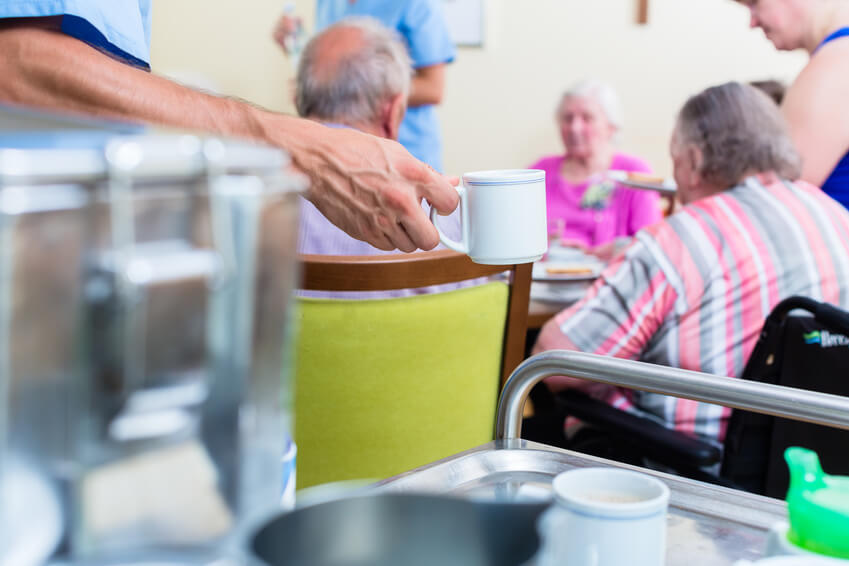
Pinpointing the factors that influence appetite can help prevent insufficient protein intake
At a recent French seminar on nutrition, Claire Sulmont Rossé presented her findings on the causes of low protein intake in the elderly.
Claire Sulmont Rossé and her team surveyed retirement home residents and convalescents with low meat intake.
The survey, called Aupalesens, was conducted in nursing homes and revealed that over-65s have low protein intake: Only 7% of elderly people eat sufficient protein and 37% cover less than two-thirds of their requirements.
Some 51% of those surveyed had small appetites (66% < calorie to protein ratio < 100%) and 42% had tiny appetites (calorie to protein ration below 66%).
“Those with tiny appetites were older than others but their cognitive abilities were equivalent,” she notes. “Of all the food groups served at lunch and dinner, those with tiny appetites ate least fish and meat.”
How can such low protein intake be explained?
AGE-RELATED FACTORS
“The most well-documented factors are age-related: alteration of feelings hunger and satiety,” says Sulmont Rossé.
They imply physiological mechanisms such as delayed gastric emptying, slow transit and increased levels of anorexigenic hormones.
“Another factor is the alteration of the ability to perceive the taste and smell of food,” she adds. “It correlates with a loss of appetite, variety of diet and interest in cooking.”
The third factor often mentioned by elderly people is reduced physical activity, which they feel reduces their appetite.
LIFE-RELATED FACTORS
“A pathology can directly affect eating. For example, a stroke or cancer often imply dysphagia. Other ailments such as depression, fever, pain or neurological issues have an indirect effect on the desire to eat.”
Side-effects of medicine (anorexia, dry mouth, digestive troubles, mycosis) can also render eating unpleasant or even painful.
A prescription diet can cause a loss of appetite. At the same time, a life change such as retirement, financial problems, loneliness, mourning and transfer to residential care can also entail a loss of appetite.
FOUR DETERMINANTS SPECIFICALLY ASSOCIATED WITH MEAT
-
Oral health status: effective mastication requires at least 21 teeth, evenly distributed between upper and lower gums. False teeth improve mastication but are less efficient than a natural dentition.
-
Change in taste: after the age of 65, 70% of subjects say they eat less red and white meat than at the age of 30-40 and give the reason as taste (42%), health (26%) and appetite (17%).
-
Belief of less need for meat compared to young people. Over half of respondents aged over 70 believed they required less meat. This belief was not related to their knowledge of protein sources.
-
Culinary dependence: No longer doing their own food shopping and meal preparation places a distance between elderly dependants and their food, which probably affects their desire to eat. The main course is all-important in communal dining. Elderly people have a clear idea of what constitutes a “family” meal and their expectations (recipes, temperature etc.) cannot always be met by a catering service.
Three out of four people in retirement homes have insufficient protein intake. One person in two suffers from or is at risk of malnutrition.
Based on the results of the survey, Sulmont Rossé calls attention to the risks of malnutrition and the need to address false beliefs as well as increasing the appeal of protein-rich dishes and adding protein to dishes that have widespread appeal, such as soups, vegetable mash and desserts.
The causes of low protein intake in the elderly. Presentation by Claire Sulmont Rossé. JFN Nantes 13-15 December 2017 www.lesjfn.fr